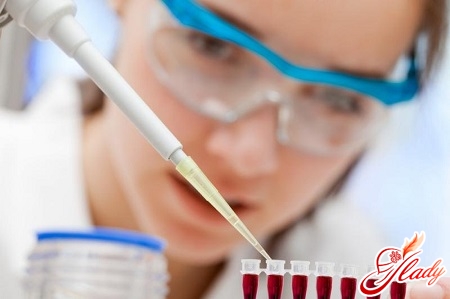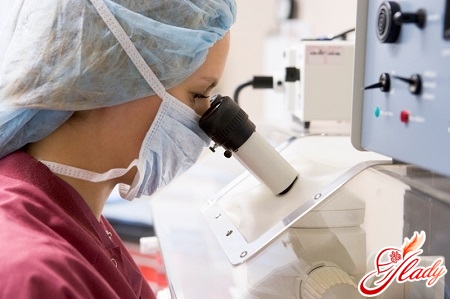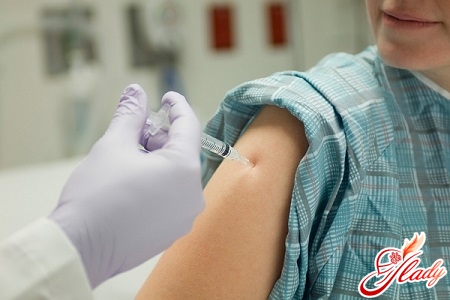
Chlamydia is one of the sexually transmitted diseasesdiseases that are transmitted from person to person sexually. It occurs equally often in women and men. It poses a serious threat to health.
What is chlamydia?
The causative agent of the disease is chlamydia.These are special pathogenic microorganisms that combine the characteristics of viruses and bacteria, but are not them. This fact significantly complicates the diagnosis, as well as the subsequent treatment of chlamydia. Diagnosis is further complicated by the fact that the incubation period lasts from 2 days to a month after infection. How to treat chlamydia - this will be discussed. Female chlamydia in its initial stage often takes a latent form. In this case, the patient does not consult a doctor, considering herself healthy. Symptoms may appear after several months, when the disease has already passed into an advanced form. Chlamydia affects the cervix, then the inflammatory process moves inside the uterus. Without treatment, the infection reaches the fallopian tubes and ovaries. Such a complicated course of chlamydia threatens infertility. Damage to the tissues of the rectum may occur. If a woman is pregnant, the child is often born with developmental disorders of various organs: vision, respiratory tract, lungs. Chlamydia infection can occur during childbirth, less often - through household contamination through clothing and underwear. In the initial stage of the disease, only the lower part of the urethra is affected. In the chronic stage, all parts of the genitourinary system are affected. In men, the lesion spreads to the prostate gland and bladder. Childhood chlamydia can manifest itself in the first days after birth. Usually, the eyes, nasopharynx and lungs of the child are affected. After birth, an intrauterinely infected child suffers from cardiovascular, gastrointestinal diseases, respiratory disorders, nervous system, and eye diseases.
Symptoms of Chlamydia
Symptoms of chlamydia infection include:
- burning sensation of the urethra and genitals;
- discomfort and soreness with urination, frequent desires for it;
- increased humidity in the genital area;
- mucopurulent discharge from the vagina;
- feeling of heaviness and pain in the lumbar region;
- erosion of the cervix;
- general malaise with fever;
- menstrual cycle disorders;
- pulling pains in the lower abdomen;
- chlamydia conjunctivitis;
- violation of erection in men.

Treatment of Chlamydia
Treatment for chlamydia should be started immediately.after diagnosis. Otherwise, the pathogen causes damage to the genitourinary system, urethra, cervix and ovaries. Lack of treatment leads to disastrous consequences in the form of infertility and ovarian dysfunction. Chlamydia is very difficult to treat. They adapt to medications and tend to hide from them. Do not self-medicate. This can lead to very serious complications. The course of treatment is developed by the attending physician individually for each patient. In addition to antibiotics (penicillin, sulfanilamide, azithromycin, tetracycline, doxycycline), the course includes:
- appropriate diet;
- immunostimulant cycloferon intravenously or intramuscularly;
- multivitamins;
- abstaining from alcohol and sexual contact.
Some specialists prescribe blood irradiationlaser. This procedure increases the effectiveness of antibiotics and has a beneficial effect on the patient's immune system. Both partners must undergo treatment. Chlamydia can be treated with the following medications:
- Doxycycline is administered orally. The full course of treatment is 1-2 weeks.
- Azithromycin is taken once.
- Rondomycin is prescribed in acute forms.
- Lomefloxacin is prescribed at the very beginning of the disease. It is taken daily for 7 days.
- Sifloks can be prescribed for different forms of chlamydia.
- Clarithromycin is taken 2 times a day for a week.
- Jozamycin is administered orally. The course lasts 7 days.
- Hexicon - vaginal suppositories. Course - 10 days.
In recent years, various methods of physiotherapy have been used in the treatment of chlamydia:
- ultrasonic influence;
- a magnetic field;
- quantum therapy;
- infrared radiation;
- electrophoresis;
- currents with variable frequency;
- ionophoresis of various medicinal substances.
Consequences of untimely treatment Neglected treatment leads to complications:
- erosion of the cervix;
- Cervicitis is an inflammation of the cervix;
- hemorrhagic cystitis - inflammation of the walls of the bladder;
- urethritis - inflammation in the urethra;
- endometritis - inflammation of the endometrium of the uterus;
- inflammation of the Bartholin glands;
- inflammation of the uterus, ovaries, fallopian tubes;
- salpingitis;
- chlamydial proctitis;
- chlamydial colpitis.
- adhesions of the fallopian tubes, their obstruction;
- infertility;
- inflammation of the liver.
Pregnant women may experience:
- ectopic pregnancy;
- endometritis;
- risk of miscarriage;
- premature delivery;
- hypoxia of the fetus.
To avoid these troubles, you need:
- a regular partner with good health;
- complete rejection of accidental sexual acts;
- regular medical examinations;
- compliance with the rules of general and personal hygiene.
A few words about male chlamydia
Male chlamydia affects the urethratract. As a result, urethritis occurs. If it is not treated in time, inflammation of the epididymis, testicles, prostate gland is possible. All this leads to acute prostatitis and other diseases, including kidney inflammation. One of the complications is Reiter's disease. This systemic disease includes arthritis, urethritis and conjunctivitis at the same time. The structure of the urethra changes, scars form in the urethra. The complication is treated exclusively by surgery. Male chlamydia does not tolerate self-medication. Folk remedies only alleviate the symptoms, but do not eliminate the disease. For treatment, antibiotics are prescribed individually for each patient. They can be: macropen, rovamycin, vilprafen, oleandomycin, clarithromycin, erythromycin. Antifungal, antimicrobial and immunomodulatory drugs can be prescribed: nystatin, viferon, flucostat, miramistin. Treatment consists of several courses. Their total duration is 3 weeks or more. Constantly monitor your health! Do not let chlamydia take its course. Think about healthy offspring, enjoy your relationship with your partner.









